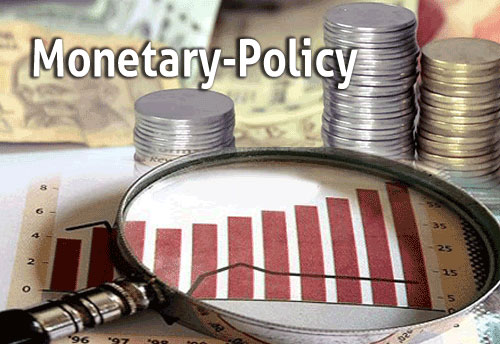Upcoming June monetary policy likely to see a tightrope balancing act: ex-RBI Dy Guv
Updated: May 22, 2021 10:30:16am

Upcoming June monetary policy likely to see a tightrope balancing act: ex-RBI Dy Guv
New Delhi, May 21 (KNN) The RBI in its upcoming June monetary policy will be faced with a “huge challenge” of doing a tightrope balancing act between growth and inflation, especially in view of Wholesale Price Index (WPI)-based inflation and core WPI inflation inching up as well as due to the need to maintain price stability with an eye on growth, according to former RBI Deputy Governor, Usha Thorat.
Speaking at a webinar on the ‘Role of Banking and Financial Sector: Overcoming Pandemic Challenges’ organised by RIS and India International Centre, Thorat said, “We are finding commodity prices pressure building up. We are finding that WPI and core inflation are inching up. We are also quite concerned about the impact of the (COVID-19) second wave and the supply and demand constraints that are being faced. So, I think this kind of a tightrope balancing will clearly come out in the next monetary policy deliberations (of the RBI).”
Thorat, who is currently the Chairperson, Foundation for Ecological Security, was responding to a question on whether the RBI should rethink its inflation targeting stance given the current conditions. In April, the WPI-based inflation had touched a 11-year high of 10.5 percent as against 7.4 percent in the previous month on account of the price rise of certain food products, fuels, minerals and manufactured items, though the retail inflation had dropped to a three-month low of 4.3 percent in April.
She pointed out that earlier there was a stance towards going back from the accommodative stance to start withdrawing the excess liquidity in the system. But the last monetary policy talked about the concerns regarding growth, she said. “One cannot completely avoid looking at the signals which are coming up from the global conditions and from the domestic conditions. So, we will clearly see this tightrope walking in the June policy. It also depends on how much you are going to change your GDP outlook, which has been retained at 10.5 percent, as well as the Consumer Price Index (CPI) outlook,” Thorat said, adding that both these outlook figures which come out in every monetary policy will be looked upon very closely with the kind of information that RBI has.
Terming the task before the Monetary Policy Committee in June as a “huge challenge”, she said “while the growth concerns are significantly important, as a person who was there (in RBI) after the 2008 crisis, and where there was a huge fiscal stimulus and a huge monetary stimulus, (pumping in) huge liquidity into the system, unleashing the power of inflation really was something that you first remember, and the kind of impact that excess liquidity had on bad loans in the system. So, that is not something I want to revisit at this stage.” She further said there is a need to have a relook at the fiscal space both at the Centre and the state government levels.
“We may again need to deal with lives and livelihood programmes like the MNREGA through food grants, and all those kinds of welfare measures which are absolutely necessary to avoid distress and then start looking at what else can we do,” she added.
Speaking on the occasion, Professor Sachin Chaturvedi, Director General, RIS, and member, Board of Governors, RBI, said the inflation target (of 4 percent, with a leeway of +/- 2 percentage points) “would be a means towards the end, which is growth and development.” He also referred to the RBI’s recent announcement of a Rs 50,000 crore liquidity package to help boost the country’s healthcare infrastructure and the efforts that the Ministry of Finance is making to bring down inflationary tendencies.
Manish Sabharwal, Chairman, Board of Directors, Team Lease Services Ltd, said availability of credit is more important than the cost of credit.
“There is really less dispute between the government and RBI (on addressing inflation). Inflation is a really important election issue in the long run. It is the biggest tax on the poor. This fight (between the government and the RBI) is overdone, this fight, that somebody likes inflation and somebody doesn’t. Nobody likes inflation. It is only people who live in the weather of the moment who obsess about this,” he said.
Dakshita Das, Additional Member, Railway Board and former, Managing Director, National Housing Bank and Mr Sangram Singh, EVP & Head (Commercial Banking Coverage Group), Axis Bank touched upon the critical role that credit would play in the post-pandemic recovery especially to the MSME sector and desired path of lending the banks and NBFCs are expected to embark on.












